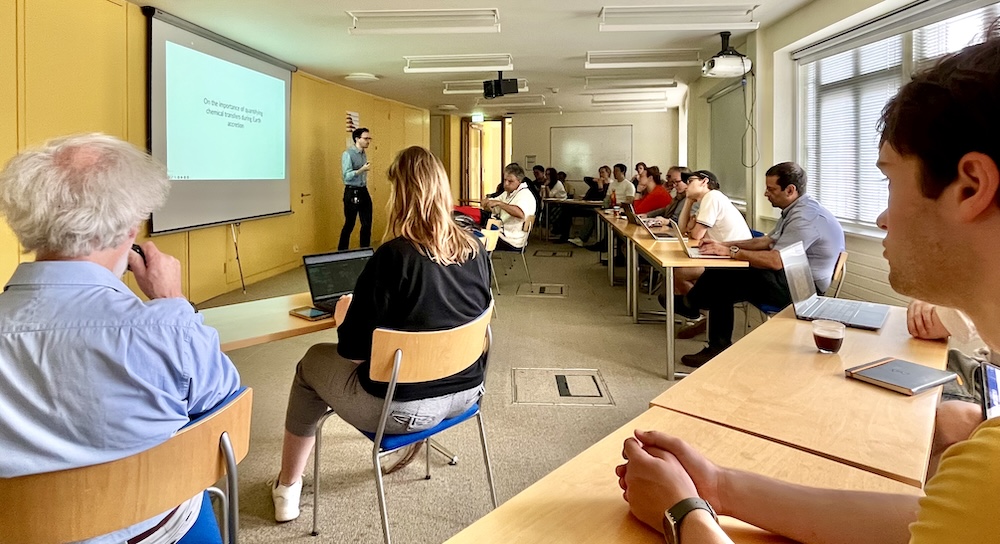Dr Quentin Kriaa is a new Assistant Professor in Climate and Environmental Fluid Dynamics, and he joined the Institute at the beginning of Easter term. Today, he presented some of his recent research on particle clouds.
At a late stage of its accretion, the Earth experienced high-energy planetary impacts. Following each collision, it is estimated that the metal core of the impactor sank as millimetric drops into a molten silicate magma ocean. The descent of these drops controlled the growth of the solid core of the Earth as well as the temperature and composition of the liquid mantel, thus affecting the emergence of plate tectonics.
During the talk, Quentin presented different experiments focussing on the interaction of settling particle clouds with their surrounding through entrainment, mixing and chemical reactions. He first discussed experiments on inert clouds settling in a quiescent fluid, and he then considered the implications of planetary rotation on the efficiency of chemical transfers inside particle clouds. This work was recently published in Physics of the Earth and Planetary Interiors, and you can read the article here.
